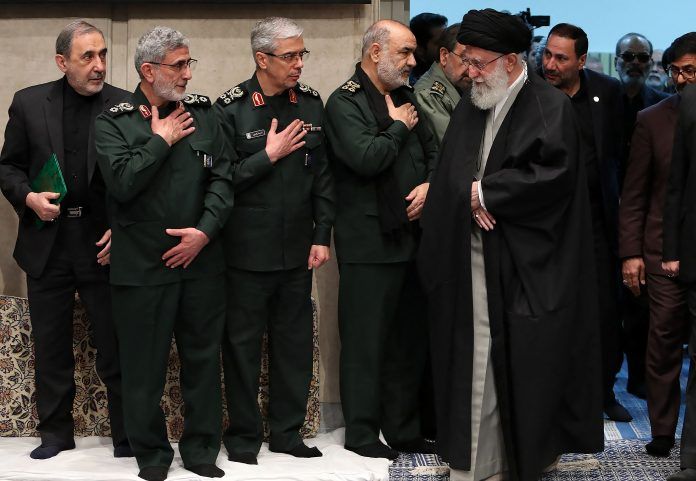
By Parisa Hafezi
DUBAI, Feb 18 (Reuters) – Voting in a parliamentary election this week is “a religious duty” for Iranians, Supreme Leader Ayatollah Ali Khamenei said on Tuesday, days before the vote seen as a referendum on the clerical establishment’s popularity.
Iran‘s hardline Guardian Council vetting body has rejected some 6,850 moderate or conservative hopefuls in favour of hardliners from among the 14,000 applicants seeking to contest the Feb. 21 vote. About a third of lawmakers have also been barred from standing again.
“Today, voting is not only a revolutionary and national responsibility, but it is also a religious duty,” Khamenei was quoted as saying by state television.
SPECIAL REPORT- Iran’s Leader Ordered Crackdown on Unrest: “Do Whatever It Takes to End It”
Due to the large number of disqualified candidates, hardliners loyal to Khamenei are likely to dominate the 290-seat parliament.
Friday’s vote will have no major influence on foreign affairs or Iran‘s nuclear policy, which is determined by Khamenei.
[aesop_image img=”https://kayhanlife.com/wp-content/uploads/2020/02/Ballotbox_-2020-02-07.jpeg” panorama=”off” credit=”Cartoon By Behnam Mohammadi ” align=”center” lightbox=”off” captionsrc=”custom” caption=”Let the battle continue …setting the stage for drawing voters to the ballot box.” captionposition=”left” revealfx=”off” overlay_revealfx=”off”]
The final authority in Iran‘s complex system of clerical rule and limited democracy, Khamenei has supported the Guardian Council, saying the next parliament was no place for those scared of speaking out against foreign enemies.
“Elections are a means to strengthen the country … A weak parliament will have long-term affects … a weak parliament will negatively affect our fight against enemies,” he said.
“The election will neutralise American’s ill intentions … the vote is the Islamic Republic’s prestige.”
Tensions have been high between Iran and the United States since 2018, when U.S. President Donald Trump exited a 2015 nuclear deal between Tehran and world powers, reimposing sanctions that have battered the country’s economy.
In retaliation, Iran has gradually rolled back its commitments under the deal. Tehran says its steps are reversible if European parties to the agreement fulfil their promises of shielding Iran‘s economy from U.S. penalties.
Pro-reform voters are dismayed by disarray in their camp and the failure of pragmatist President Hassan Rouhani to abide by an election pledge to ease social and political restrictions.
A parliament dominated by hardliners could increase pressure on Rouhani, the architect of the nuclear pact, whose performance in power has been criticized by Khamenei’s influential allies.
Campaigning will end on Thursday, on the eve of the vote, for which 58 million Iranians are eligible to vote out of a population of 83 million.
(Additional reporting by Babak Dehghanpisheh Writing by Parisa Hafezi Editing by Helen Popper)

